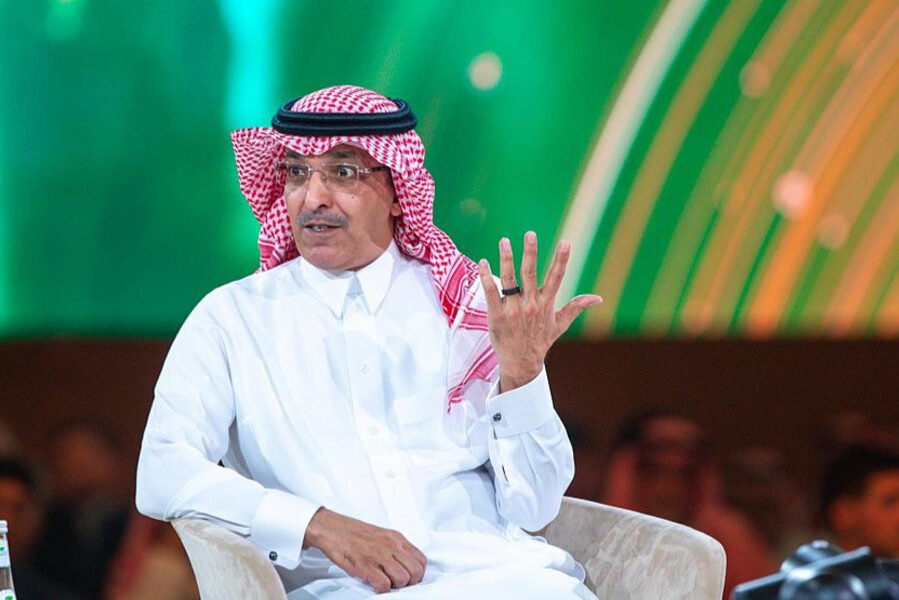Saudi Finance Minister Muhammad Al-Jadaan revealed that non-oil revenues covered 40 percent of expenditures in 2021, up from 10 percent previously.
Al-Jadaan stated at the Saudi Budget Forum 2023 in Riyadh that the previous five years saw major structural reforms that transformed the budget deficit into a surplus.
He said that “dependence on oil revenues previously led to budget deficits,” indicating that Saudi Arabia has progressed to the stage of financial sustainability and planning for three, five, and even ten years in some sectors.
Read more: Al-Jadaan at the opening of Euromoney: Saudi economy emerged stronger than ever
According to Al-Jadaan, “the major structural reforms resulted in less reliance on a fluctuating source of spending.”
Additionally, he highlighted that “Saudi Arabia was among the first countries to take proactive steps to reduce inflation by setting a ceiling for energy prices,” and that “the government provided tens of billions to compensate Aramco for selling at a price lower than the global price.”
Al-Jadaan also said that Saudi has paid more than 99 percent of the private sector’s dues within 15 days in 2022.
He explained that the government did so to send a clear message to the private sector that the government does not trade by delaying payment, and that, given the high-interest rates, payment within 15 days rather than 45 days is a dilution of the operating budget on the private sector rather than borrowing.




